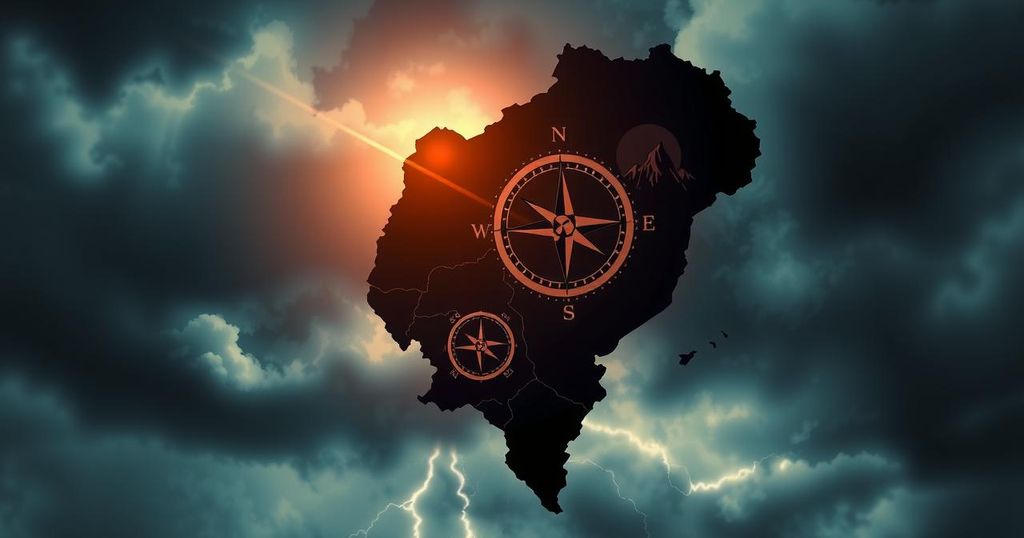M23 rebels have announced plans to capture DRC’s capital, Kinshasa, advancing from Goma to Bukavu. In response, the DRC government is mobilizing military forces against them, rejecting negotiation efforts. Backed by Rwanda, M23 claims to defend Tutsi rights while increasing unrest in an area already affected by historical conflicts and humanitarian crises.
M23 rebels have declared their intention to seize the capital city of Kinshasa in the Democratic Republic of Congo (DRC), having recently advanced through Goma and now progressing toward Bukavu. This escalation has triggered widespread fear among the local population as DRC’s President calls for a significant military mobilization to confront the rebellion. Meanwhile, the Defense Minister has taken a firm stance against dialogue with the rebels, insisting instead on military action.
The M23 rebels, supported by approximately 4,000 troops from Rwanda, are part of over 100 armed groups competing for control in the resource-rich eastern DRC. They have expressed a willingness to negotiate with the government, as proposed by a regional bloc, but their ultimate goal remains the acquisition of political power. The situation in Goma has deteriorated significantly, with reports of bodies on the streets and rampant looting, in addition to widespread power and water outages.
This ongoing conflict is rooted in longstanding ethnic tensions, which can be traced back to the 1994 genocide in Rwanda. M23 claims to be defending the rights of ethnic Tutsis in the DRC, while Rwanda alleges ongoing persecution of Tutsis by Hutu groups. The return of many Hutus from Rwanda to DRC following the genocide has further complicated these dynamics, and historical precedents suggest that a withdrawal by the M23 rebels could be challenging this time around.
President Paul Kagame of Rwanda has engaged in diplomatic discussions with Angola’s President Joao Lourenco, who is acting as a mediator in the conflict. Both leaders are committed to collaborating with other African nations to navigate the ongoing violence and unrest. However, the M23’s backing from Rwanda indicates a deeper regional involvement, complicating potential resolutions to the conflict and raising concerns regarding the broader stability in Central Africa.
The M23 conflict in the DRC is a complex interplay of ethnic conflicts and geopolitical interests, primarily affecting the eastern region rich in valuable minerals. The DRC has been grappling with instability and violence for decades, often fueled by external involvement and historical grievances from the 1994 Rwandan genocide. The current situation is a continuation of this tumultuous history, as local groups vie for control amid a backdrop of significant foreign influence, particularly from neighboring Rwanda.
In summary, the M23 rebels have escalated their push toward Kinshasa, prompting a military response from the DRC government amid fears among residents. This conflict underscores deep-seated ethnic tensions and regional rivalries, particularly involving Rwanda’s support of the rebels. As diplomatic discussions continue, the situation remains precarious, highlighting the challenges of achieving lasting peace in the DRC.
Original Source: www.vaticannews.va




